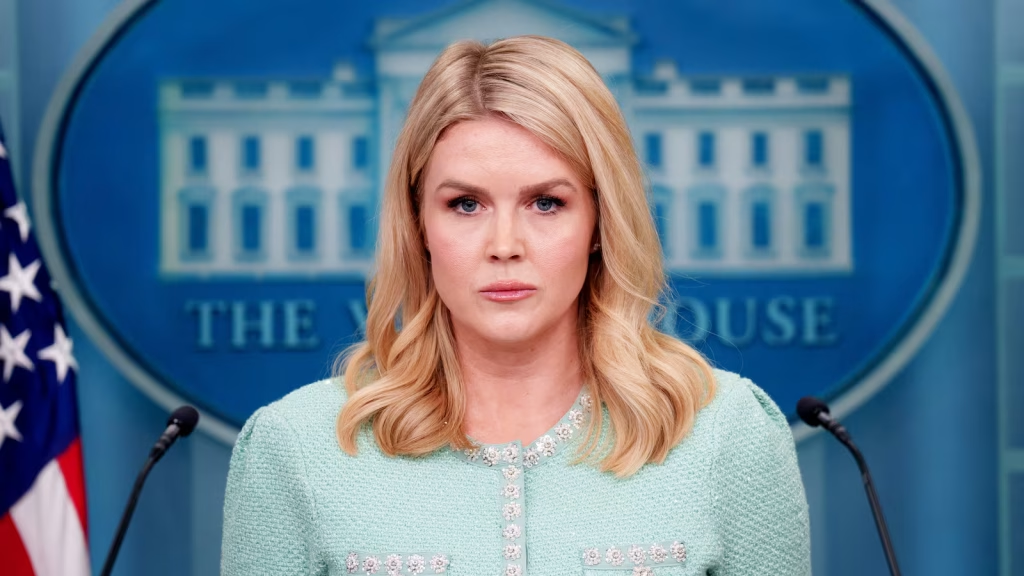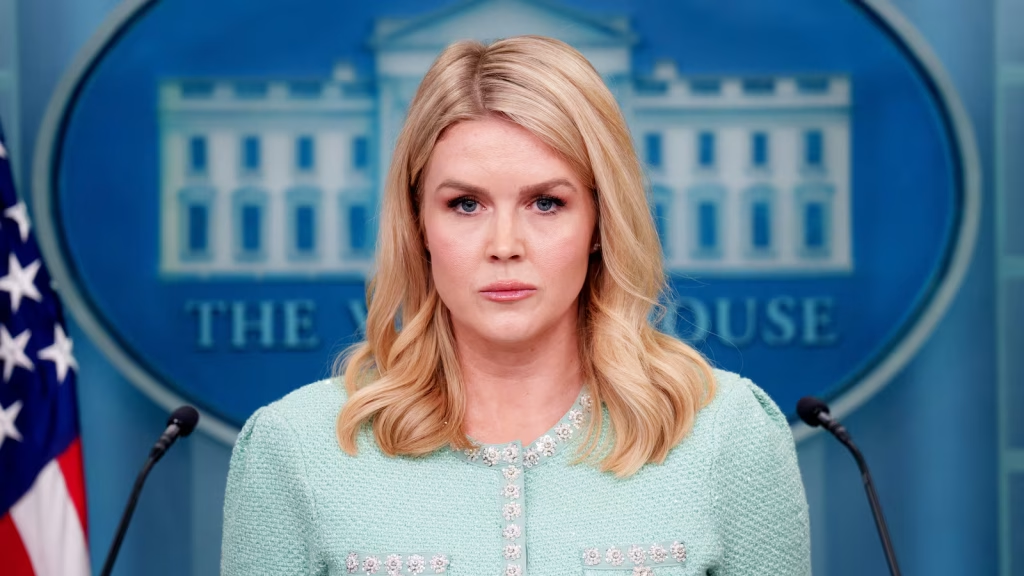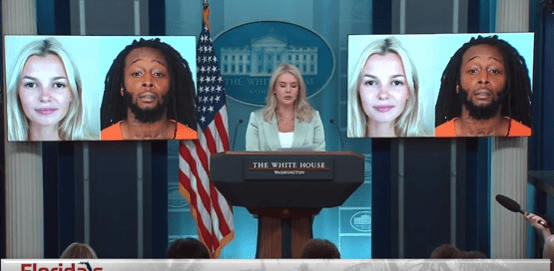Karoline Leavitt calls out shocking details in the Iryna Zarutska case, fueling a firestorm over bail reform and political bias in the courts
The story of Iryna Zarutska’s murder has already shaken hearts across the country, but the newest twist is leaving people stunned and angry. During a fiery exchange in the White House briefing room, Karoline Leavitt revealed that the judge responsible for releasing the man who went on to kill Zarutska was not just any ordinary official—he was a strong supporter of former Vice President Kamala Harris. The detail landed like a thunderclap in the room, sparking immediate debate over politics in the justice system and whether decisions on bail are influenced by ideology rather than public safety.

According to Leavitt, the accused murderer had been arrested multiple times before, yet he was freed after simply signing a written promise to return for a court hearing. No bail, no financial stake, no real consequence if he chose not to show up—just a piece of paper and a signature. To many listening, the idea that someone with a violent history could walk back into the community under such loose terms felt like madness. “Just sign a written promise and come back another day?” Leavitt repeated with disbelief. “This is the exact kind of dangerous policy that puts innocent people at risk.”
The frustration isn’t just about one case. It’s part of a much bigger conversation happening across America about bail reform and how courts handle repeat offenders. In recent years, several states and cities have pushed to eliminate or reduce cash bail, arguing that it unfairly punishes the poor and clogs jails with people who haven’t been convicted of crimes. But critics say those reforms are going too far, allowing dangerous individuals back onto the streets with no accountability. For people mourning Iryna Zarutska, the abstract debate has become painfully real.
The judge at the center of this controversy reportedly had a history of supporting progressive policies on criminal justice, including reducing bail requirements. What makes this case stand out is the suggestion that political leanings—not just legal judgment—played a role in the decision. The fact that this judge was described as a “strong supporter” of Kamala Harris has intensified the scrutiny, since Harris herself built her career with a complex record as both a prosecutor and a champion of reforms. Whether or not Harris had any direct connection to this case is almost beside the point; the perception of political bias has already taken root in the public conversation.
For the friends and family of Iryna Zarutska, none of this legal or political back-and-forth changes the devastating reality that she is gone. A Ukrainian refugee who had already endured the trauma of war, she came to America hoping for safety and a new life. Instead, she fell victim to a system that many now feel failed her completely. Her story has become a symbol, not only of individual tragedy but of the risks tied to policies that critics see as soft on crime.

Leavitt’s remarks are likely to echo far beyond the briefing room. Supporters of stricter bail laws now have another high-profile case to point to as evidence that reforms need to be rolled back or at least tightened. Opponents will argue that tying one judge’s decision to national politics oversimplifies a complicated issue. But in the end, what most people see is a young woman who should still be alive and a system that didn’t do enough to protect her.
This case is going to stay in the headlines for a while, not only because of its heartbreaking nature but because it exposes the clash between justice, politics, and safety in the starkest possible way. When people start wondering whether judges are acting out of political loyalty instead of protecting the public, trust in the system begins to crumble. And for Iryna, whose life was cut short, the question now being asked is whether her death could have been prevented if one judge had made a different call.


